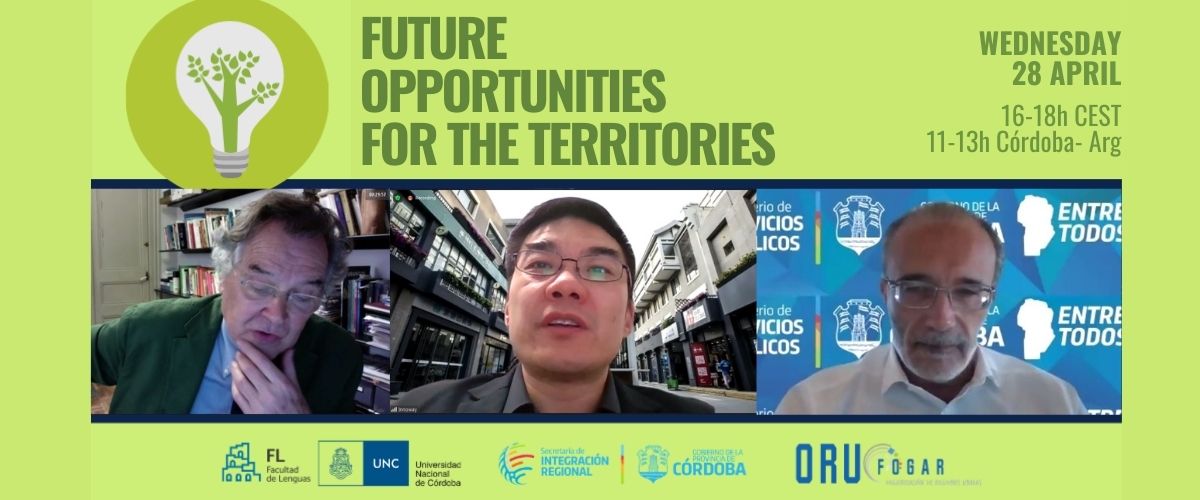The energy transition and the World LED Forum

With an important participation of the government of the province of Cordoba as host, and also with the presence of ORU Fogar members from around the world, a prepara-tory session for the V World Forum on Local Economic Development was held on April 28 within the framework of the organization's Bureau. This session basically dealt with the issue of energy transition and was entitled "Digitalization and energy transition, two areas for territorial economic development".
Tim Luan, director of Innoway, talked about the possibilities of creating jobs in the digi-tal field. The director of an innovation agency of Beijing clearly explained that if today in Beijing, there is a constant appearance of unicorns (tech startups with a valuation of over1,000 million) is by a political decision of the 19th Congress of the Chinese Com-munist Party, who promoted the development of digitalization. Tim Luan explained that, despite this centralized decision, digitalization has not limited to urban areas. In rural areas, with very active government cooperation, they are taking advantage of the opportunities and advantages of all digital platforms, so that trade and agriculture are creating a new model in the territory. “Influencers-as he revealed-are also appearing in the Chinese rural regions”.
Santiago Vilanova, the journalist author of “Green entrepreneurs for a blue planet”, began by explaining that the regions are essential in the fight against climate change and the preservation of ecosystems because “being closer to the environment, they can have a more accurate diagnosis of the carrying capacity of the territory”. He advocated an energy transition that allows the application of the principle of subsidiarity through promoting self-consumption, savings and efficiency, taking advantage of digital tech-nology and increasingly economical access to the solar energy. ”It's a great moment for the regions to start an escalation in favor of the creation of small and medium-sized wind and solar parks, as well as solar installations on the roofs in towns and cities managed by neighborhood associations, municipalities or consumer cooperatives". He ended his speech by advocating the on-going de-fossilization of the economy because, he said,”there is no vaccine against climate change."
Fabián López, the Minister of Public Services of province Córdoba, showed the work of the of Córdoba as an example of Energy Transition. "We have been the first subnational government in Latin America," he said,”to bet on the 2030 Agenda and the SDGs." He described different experiences that have already made it possible to reduce green-house gases, both in the agricultural and industrial fields, at the same time relating renewable energies. The minister explained that Cordoba has not only promoted solar and wind parks, or has taken advantage of hydraulic energy, but also in favor of biofu-els. With the possibility of having extensive crops of corn or soy, the province has bio-ethanol, biodiesel and biomethane in place for the sake of strengthening the unique economy.
After a debate participated with members of regional governments from Argentina, Spain, Ecuador, Ivory Coast or Peru, the Secretary General of Oru Fogar, Carles Llorens, closed the event. He recalled that there were great riots happening especially in Latin America just before the pandemic. In that crisis, it was evident that many people lacked of expectations and many young people were frustrated of not having a job or of having precarious jobs. This situation has been aggravated by the pandemic, but Llorens said “a session like this has shown us that there are employment opportunities for an entire generation, in the digital field or in the energy transition”. And he concluded:”We are going to have the forum with this message of optimism."








































































